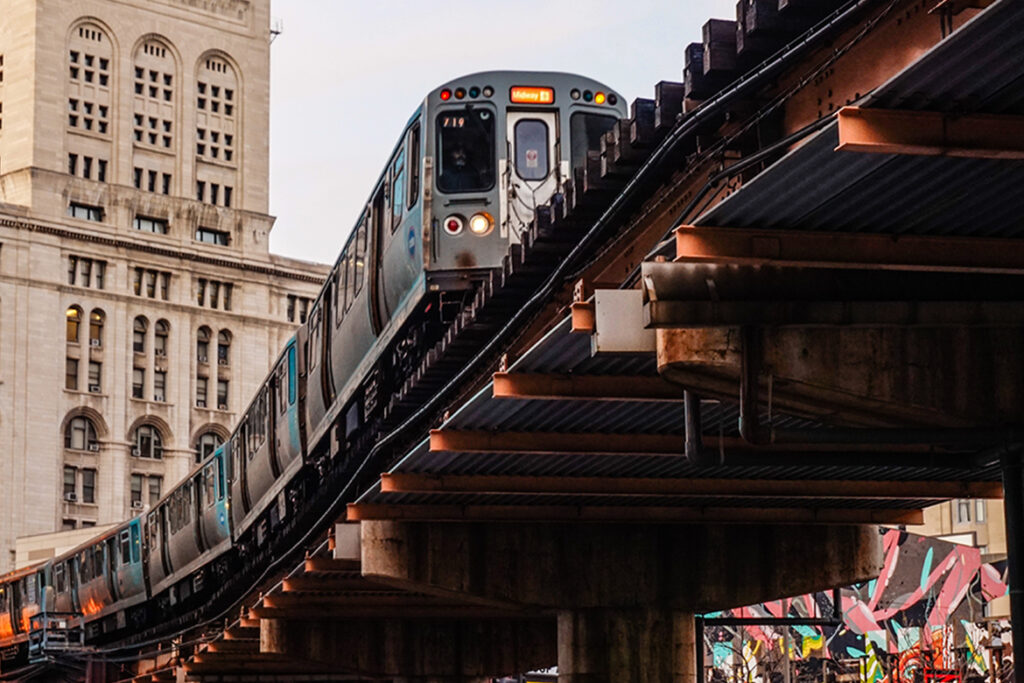While safety improvements such as crossing gates, flashing lights, and bells have reduced railroad-vehicle collisions, train accidents in Indiana are devastating when they occur. The immense size and force of trains make collisions often catastrophic, causing severe injuries or death. If you or a loved one have been harmed in a train accident, whether as a driver, passenger, or pedestrian, you need experienced legal help to pursue the compensation you deserve.
At Schafer & Schafer LLP, our dedicated Northwest Indiana train accident lawyers have extensive experience investigating railroad accidents to determine fault and liability. We understand the federal and state safety regulations that apply to railroads and the multiple parties potentially responsible. Our team advocates for victims, seeking damages to cover medical expenses, lost income, pain and suffering, and other losses resulting from the accident.
Common Causes of Train Accidents in Indiana
Train accidents often result from a combination of human error and mechanical or infrastructural failures, including:
- Operator negligence such as speeding or inattentiveness by train conductors
- Motorist or pedestrian failure to obey crossing signals or warning devices
- Malfunctioning crossing gates, lights, or bells
- Poor track maintenance or defects in the rail infrastructure
- Derailments caused by faulty cargo loading or equipment failure
- Adverse weather causing slippery tracks and reduced visibility
- Vehicle stalling or getting stuck on railroad tracks
Types of Train Accidents That May Lead to Injury Claims
Train accidents can be devastating, often leading to severe injuries and complex legal situations. When trains are involved in accidents, the resulting injury claims frequently originate from a few common scenarios:
- Grade Crossing Collisions: Accidents where trains collide with vehicles (cars, trucks, motorcycles, or buses) at railroad crossings.
- Pedestrian Accidents: Injuries to individuals on or near train tracks or platforms.
- Train Derailments: Incidents where trains leave the tracks, causing injury to passengers or bystanders.
- Employee/Contractor Incidents: Accidents involving railroad employees or contractors during train operations.
- Equipment Failure: Injuries stemming from defective railroad equipment or inadequate maintenance.
Understanding these different types of accidents is the first step in identifying potential negligence and pursuing a valid injury claim.
Who May Be Liable in a Train Accident Case?
Determining liability often involves several parties, such as:
- Train operators and their parent railroad companies
- Third-party contractors responsible for railroad maintenance or signaling
- Governmental entities in charge of maintaining highway-rail crossings
- Vehicle drivers or pedestrians, particularly in contributory negligence situations
- Equipment manufacturers if defective train components contributed to the accident
What If a Government Entity Is Involved?
Government agencies responsible for roadways and railroad crossings may share liability if they failed to maintain safety features or properly warn of hazards. Filing claims against government bodies requires observing specific notice periods and procedural rules, so professional legal guidance is crucial.
What to Do After a Train Accident Injury
- Seek immediate medical attention regardless of injury severity
- Call emergency services and report the accident to authorities
- Gather evidence, including photos of the scene, vehicles, and signals
- Obtain contact information from witnesses and first responders
- Avoid giving detailed statements to railroad representatives or insurance agents without your lawyer present
- Consult a seasoned train accident attorney promptly to preserve your rights
What Damages Can You Recover in a Train Accident Claim?
Victims may pursue compensation for:
- Medical bills, future care, and rehabilitation costs
- Lost wages and diminished earning capacity
- Pain and suffering, emotional distress, and loss of enjoyment of life
- Property damage to vehicles or personal belongings
- Funeral and burial expenses in wrongful death cases
- Loss of consortium and companionship for family members
How Long Do You Have to File a Train Accident Lawsuit in Indiana?
Indiana law generally gives you two years from the date of injury or death to file a personal injury or wrongful death claim. Missing this deadline may forfeit your right to compensation. Prompt legal consultation helps ensure timely filings and preservation of critical evidence.
Why Train Accident Cases Are More Complex Than Car Crashes
Unlike a typical auto collision, train accident claims present a unique set of challenges. At Schafer & Schafer LLP, our Northwest Indiana train accident lawyers understand how catastrophic being involved in a train accident can be.
We combine our local knowledge with extensive experience in personal injury law to navigate the unique hurdles these cases present, all while providing the compassionate support you deserve during a difficult time.
Train accident claims are often complicated by:
- Multiple Liable Parties: Beyond just the train operator, liability might extend to the railroad companies, various government entities responsible for maintaining crossings, third-party contractors involved in track or signal maintenance, or even equipment manufacturers if a defective part contributed to the crash.
- Federal Railroad Safety Regulations: The railroad industry is heavily regulated by federal laws and agencies like the Federal Railroad Administration (FRA). Proving negligence often involves demonstrating a violation of these strict federal safety regulations and compliance issues, a task requiring specific legal expertise in transportation law.
- Technical Evidence: This includes analyzing complex data from train "black boxes" (event recorders), signal data, track maintenance records, and often requires the insights of expert accident reconstructionists to piece together exactly how the incident occurred.
- Potential Governmental Immunity and Strict Procedural Requirements: When government bodies are involved in maintaining tracks or crossings, they may be protected by governmental immunity. This can introduce strict procedural requirements and tight deadlines for filing claims that differ significantly from standard personal injury cases.
At Schafer & Schafer LLP, we are prepared to take on these complexities, ensuring that no stone is left unturned in our pursuit of justice for victims in Northwest Indiana.
Schedule a Free Consultation with Trusted Personal Injury Lawyers
If you or a loved one suffered injuries in a train accident in Northwest Indiana, the Schafer & Schafer LLP legal team is here to help. Contact us today for a free, no-obligation consultation. We will thoroughly review your case, investigate all liable parties, and guide you through the claim process to pursue the maximum compensation available.Call now or reach out online to begin securing your recovery and protect your legal rights.



